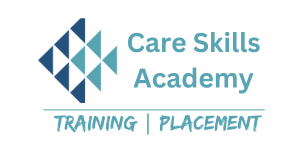In today’s fast-paced world, cars are an essential part of our daily lives. Whether for work, leisure, or emergencies, vehicles keep us moving. But what happens when they break down? Enter the world of car repair—a vital skill that not only saves money but can also open doors to a rewarding career. A car repairing course offers a structured way to learn these skills, turning novices into confident mechanics.
Why Learn Car Repair?
For car owners, understanding the basics of repair can lead to significant savings on maintenance and prevent unnecessary expenses. Imagine being stranded due to a flat tire or an overheated engine and having the know-how to resolve the issue on the spot. Beyond personal use, learning car repair can become a lucrative career path. With the rise of electric and hybrid vehicles, the automotive industry is evolving, creating a demand for skilled technicians familiar with both traditional and modern systems.
What a Car Repairing Course Covers
A good car repairing course is comprehensive, blending theory with hands-on practice. You’ll start with the fundamentals:
- Engine Basics: Understanding internal combustion engines, hybrid systems, and electric motors.
- Diagnostics: Using tools to identify issues with engines, brakes, or electrical systems.
- Electrical Systems: Learning about batteries, alternators, and modern computer-controlled systems.
- Routine Maintenance: Oil changes, tire rotations, and brake servicing.
- Advanced Repairs: Tackling transmission systems, suspension repairs, and exhaust issues.
These courses often emphasize safety, ensuring students learn the correct protocols to avoid accidents during repairs.
Benefits of Taking a Professional Course
While online videos and DIY tutorials provide basic insights, a professional course offers structured learning under expert guidance. Accredited programs provide access to modern tools, diagnostic equipment, and hands-on practice, which are critical in mastering repair techniques. Moreover, completing such a course can lead to certifications, enhancing employability in the automotive industry.
Career Opportunities in Car Repair
The skills gained through a car repair course can lead to diverse career paths. Graduates can work in:
- Automotive Repair Shops: Handling diagnostics and repairs for a variety of vehicles.
- Dealerships: Specializing in specific brands or vehicle types.
- Self-Employment: Starting a garage or offering mobile repair services.
- Fleet Management: Maintaining corporate or public transport fleets.
Additionally, with the shift towards electric vehicles (EVs), courses often include training on EV systems, giving you an edge in the future-focused industry.
Who Should Enroll?
Car repair courses are ideal for anyone passionate about automobiles, DIY enthusiasts who want to maintain their vehicles, or individuals seeking a career change. No prior experience is required for beginner-level courses, making them accessible to anyone with a desire to learn.
Final Thoughts
A car repairing course is more than just a skill-building opportunity; it’s an investment in independence and professional growth. Whether you’re looking to save on maintenance costs, fix your own car, or step into the dynamic automotive industry, this course sets the foundation for success. Start your journey today and turn your passion for cars into expertise!

